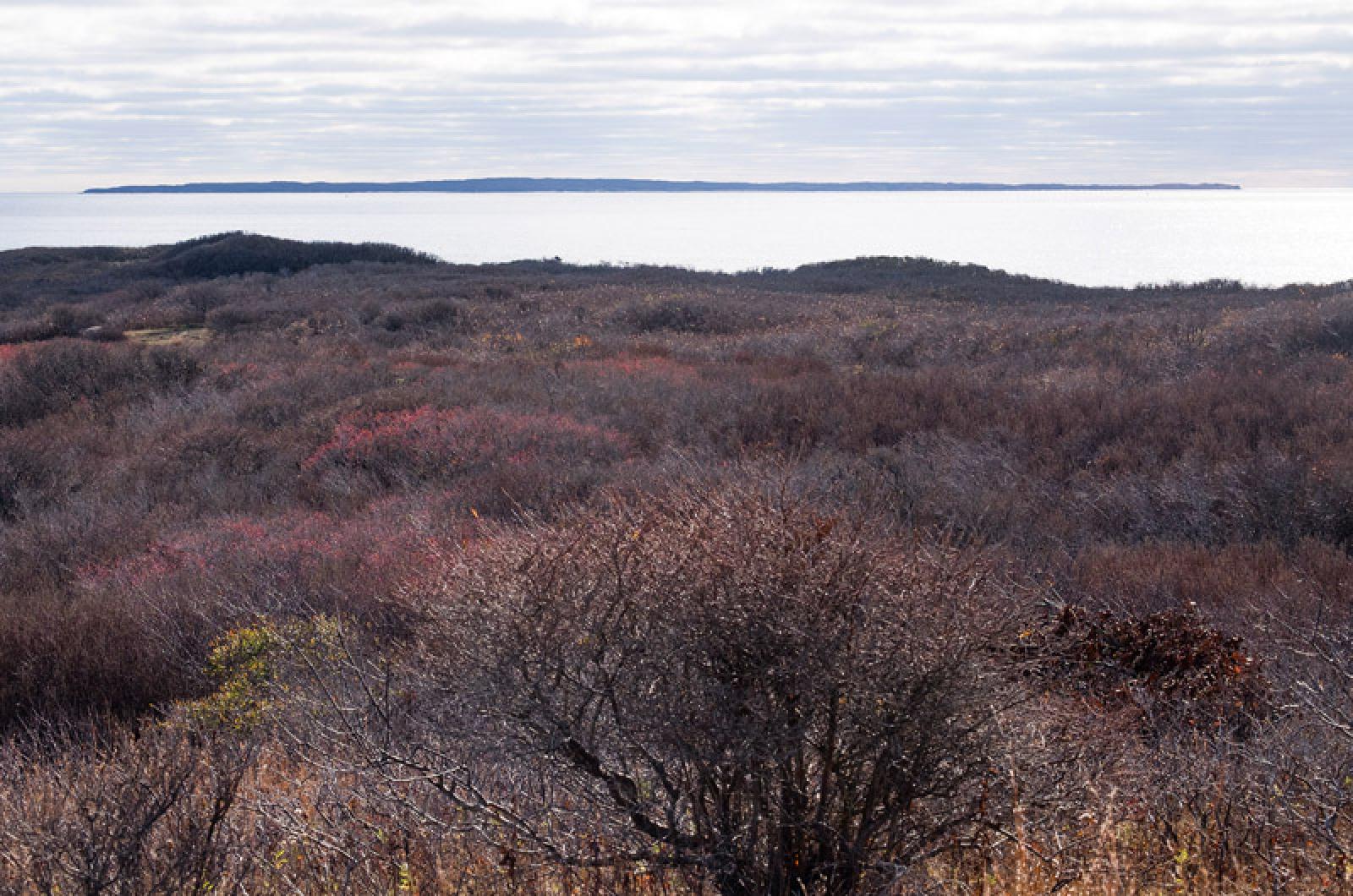The state Supreme Judicial Court handed a decisive legal victory early this week to the town of Aquinnah, the Vineyard Conservation Society and others who have been battling a private developer for years over whether a wild expanse of land off Moshup Trail can be opened up for development.
In a ruling issued on Monday, the state’s highest court said that landowners James Decoulos and Maria Kitras do not have legal access to two landlocked parcels totalling about 30 acres off the trail, a public road that runs through the remote western reaches of the Vineyard.
The ruling brings to an end a complicated land use case that has bounced around in state courts for nearly 20 years. The case could have had far-reaching effects on land titles throughout Aquinnah, and involves arcane issues of law, some dating to the late 19th century when most of the land in Aquinnah was owned in common by native Americans who were members of the Wampanoag tribe. The central issue revolved around the two Decoulos lots, and whether the landowners had implied access through a legal doctrine known as easement by necessity. The lots were originally setoff lots, partitioned and deeded to tribal members in the late 1800s when Gay Head was incorporated as a town. Easement rights were never included with the lots — leaving the matter open to legal dispute more than a century and a half later.
Arguments at the Supreme Judicial Court were heard in Boston in December last year.
Mr. Decoulos and Ms. Kitras are lead plaintiffs in the case, joined by another plaintiff group that includes landowners Mark and Charles Harding. The plaintiffs were seeking to establish a right of access to the landlocked parcels off Moshup Trail through conservation land held by the town, the Vineyard Conservation Society and the Martha’s Vineyard Land Bank. Several private property owners, including Caroline Kennedy and her husband Edwin Schlossberg Jr., were also defendants in the case.
For many years the town and conservation groups have been involved in a project aimed at protecting the heathlands surrounding Moshup Trail, a rare environment that includes a maritime shrub forest. State environmental leaders have also been involved in the efforts. At the same time, Mr. Decoulos and Ms. Kitras have been battling the town on numerous legal fronts over their development plans near the trail.
The case was first filed in 1997, and is a window into the history of the town. In the late 1800s the Massachusetts legislature took steps to provide Wampanoags with the same rights as other citizens by incorporating the town of Gay Head. In a process called partition, commissioners appointed by a probate judge divided the entire town into 700 setoff lots, deeding them to tribal members. Provisions were made for access to peat bogs and to Menemsha Pond for fishing, but no other access provisions were included.
The question before the court was whether the Decoulos lots — once setoff lots like virtually every lot in town — had implied access. Attorneys for the plaintiffs argued that the long tribal custom of sharing access had the effect of creating an equivalent chain of title on the land. Attorneys for the defendants said that many of the setoff lots changed ownership after they were first given to tribal members, and that easement rights could and should have been negotiated as part of the purchase or sale. They also pointed to the Indian land claims settlement approved in 1983 and ratified by the state legislature and Congress a few years later. When the settlement was approved, any aboriginal rights on the setoff lots were extinguished. The case went first to the Massachusetts Land Court, which found there was no easement by necessity since the lots were originally held in common. The state Court of Appeals overturned that decision, finding that the long tribal custom of sharing access had the effect of establishing an equivalent chain of title.
The 25-page ruling issued this week by the SJC upholds and agrees with the earlier ruling by land court that found the plaintiffs could not prove easement by necessity.
Among other things, the high court justices found that tribal customs at the time (for land held in common) and other easements in the setoff deeds (providing peat bog rights and access to a pond for fishing) rebutted any presumption that there was an intention by state probate commissioners to create access rights when the land was partitioned. Moreover, the court found that access easements were written into deeds on Chappaquiddick at about the same time, suggesting that if access had been intended, it would have been specified.
“We conclude that the plaintiffs failed to meet their burden of establishing that the commissioners intended to create easements by necessity,” they wrote.
Ronald H. Rappaport, longtime attorney for the town, called the decision pivotal. “If we had lost this case it would have meant that every lot in the town would be subject to the possibility of having a road go through it,” he said. “It would have opened up many more areas to development. This was a 19-year effort and we are thrilled with the result.”
Mr. Decoulos and his attorney Wendy Sibbison did not immediately return calls from the Gazette seeking comment.






Comments (2)
Comments
Comment policy »